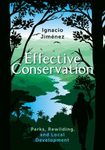About this book
As the US National Park Service marks its centennial in 2016, parks and protected areas worldwide are under increasing threat from a variety of factors, including storms and fires of greater severity, plant and animal extinctions, the changing attitudes of a public that has become more urbanized, and the political pressures of narrow special interest groups. In the face of such rapid environmental and cultural changes, Science, Conservation, and National Parks gathers a group of renowned scholars – including Edward O. Wilson, Jane Lubchenco, Thomas Dietz, and Monica Turner, among many others – who seek to address these problems and, in so doing, to secure a future for protected areas that will push forward the frontiers of biological, physical, and social science in and for parks.
Examining the major challenges of parks and protected areas throughout the world, contributors provide answers to a number of key conservation questions, such as: How should stewardship address climate change, urban encroachment and pollution, and invasive species? How can society, especially youth, become more engaged with nature and parks, and are there models to guide interactions between parks and their neighbors? What are appropriate conservation objectives for parks in the Anthropocene? Charting a course for the parks of the next century, Science, Conservation, and National Parks is certain not only to catalyze the continued evolution of US park conservation policy, but also to be an inspiration for parks, conservation, and management worldwide.
Contents
Preface
Section I : Mission and Relevance of National Parks
Edward O. Wilson
One / Parks, Biodiversity, and Education: An Essay and Discussion
Kirsten Grorud-Colvert, Jane Lubchenco, and Allison K. Barner
Two / Seas the Day: A Bluer, Saltier Second Century for American Parks
Ernesto C. Enkerlin-Hoeflich and Steven R. Beissinger
Three / A Global Perspective on Parks and Protected Areas
Holly Doremus (moderator), Denis P. Galvin, George Miller, and Frances B. Roberts-Gregory
Four / Strategic Conversation: Mission and Relevance of National Parks
Section II : Stewardship of Parks in a Changing World
Monica G. Turner, Daniel C. Donato, Winslow D. Hansen, Brian J. Harvey, William H. Romme, and A. LeRoy Westerling
Five / Climate Change and Novel Disturbance Regimes in National Park Landscapes
Patrick Gonzalez
Six / Climate Change Trends, Impacts, and Vulnerabilities in US National Parks
Jill S. Baron, Tamara Blett, William C. Malm, Ruth M. Alexander, and Holly Doremus
Seven / Protecting National Parks from Air Pollution Effects: Making Sausage from Science and Policy
Daniel Simberloff
Eight / Biological Invasions in the National Parks and in Park Science
Joel Berger
Nine / The Science and Challenges of Conserving Large Wild Mammals in 21st-Century American Protected Areas
David D. Ackerly (moderator), Stephanie M. Carlson, C. Josh Donlan, Laurel G. Larsen, and Raymond M. Sauvajot
Ten / Strategic Conversation: Stewardship of Parks in a Changing World
Section III : Engaging People in Parks
Ruth DeFries
Eleven / The Tangled Web of People, Landscapes, and Protected Areas
Thomas Dietz
Twelve / Science, Values, and Conflict in the National Parks
John Francis, Kelly J. Easterday, Kelsey J. Scheckel, and Steven R. Beissinger
Thirteen / The World Is a Park: Using Citizen Science to Engage People in Parks and Build the Next Century of Global Stewards
Edwin Bernbaum
Fourteen / The Spiritual and Cultural Significance of Nature: Inspiring Connections between People and Parks
Jennifer Wolch (moderator), Justin S. Brashares, Cyril F. Kormos, Christine S. Lehnertz, and Nina S. Roberts
Fifteen / Strategic Conversation: Engaging and Disengaging People in Parks
Section IV : Future of Science, Conservation, and Parks
Jamais A. Cascio
Sixteen / A New Kind of Eden
Gary E. Machlis
Seventeen / The Near-Horizon Future of Science and the National Parks
Steven R. Beissinger and David D. Ackerly
Eighteen / Science, Parks, and Conservation in a Rapidly Changing World
Steven R. Beissinger and Tierne M. Nickel
Appendix / Historical Connections between UC Berkeley, the Birth of the US National Park Service, and the Growth of Science in Parks
About the Contributors
Index
Customer Reviews
Biography
Steven R. Beissinger is professor of conservation biology in the Department of Environmental Science, Policy, and Management and in the Museum of Vertebrate Zoology at the University of California, Berkeley. He is coeditor of Population Viability Analysis, also published by the University of Chicago Press.
David D. Ackerly is professor in the Department of Integrative Biology and an associate curator in the Jepson Herbarium at the University of California, Berkeley.
Holly Doremus is the James H. House and Hiram H. Hurd Professor of Environmental Regulation at the University of California, Berkeley, School of Law and coauthor of Water War in the Klamath Basin: Macho Law, Combat Biology, and Dirty Politics.
Gary E. Machlis is university professor of environmental sustainability at Clemson University and science advisor to the director of the National Park Service.



































